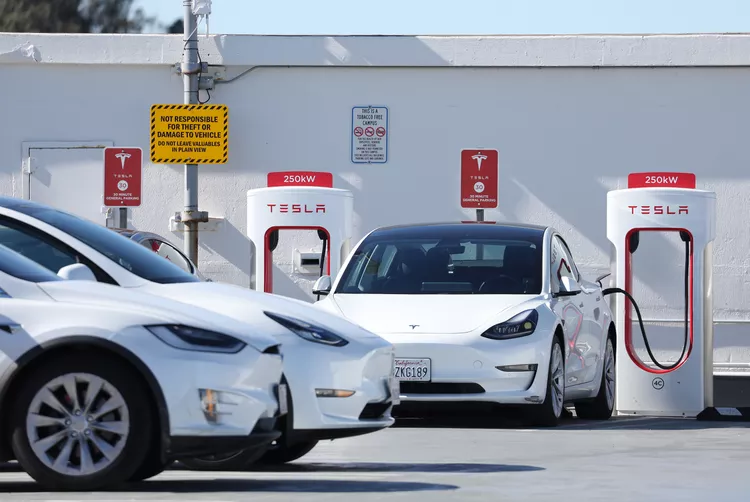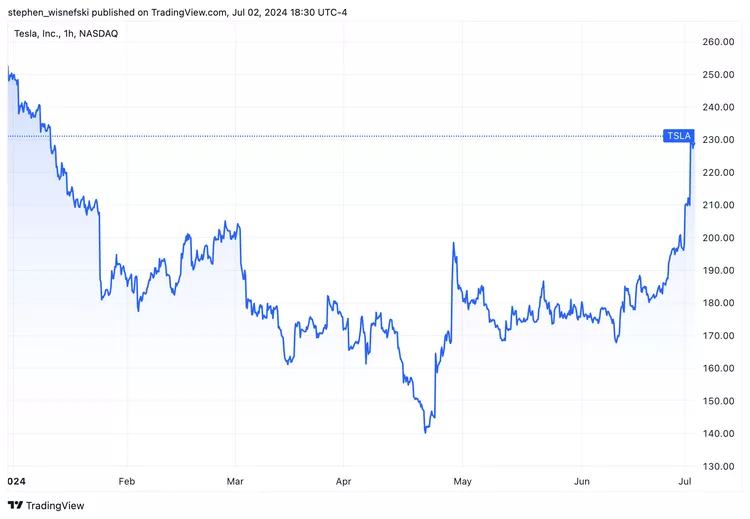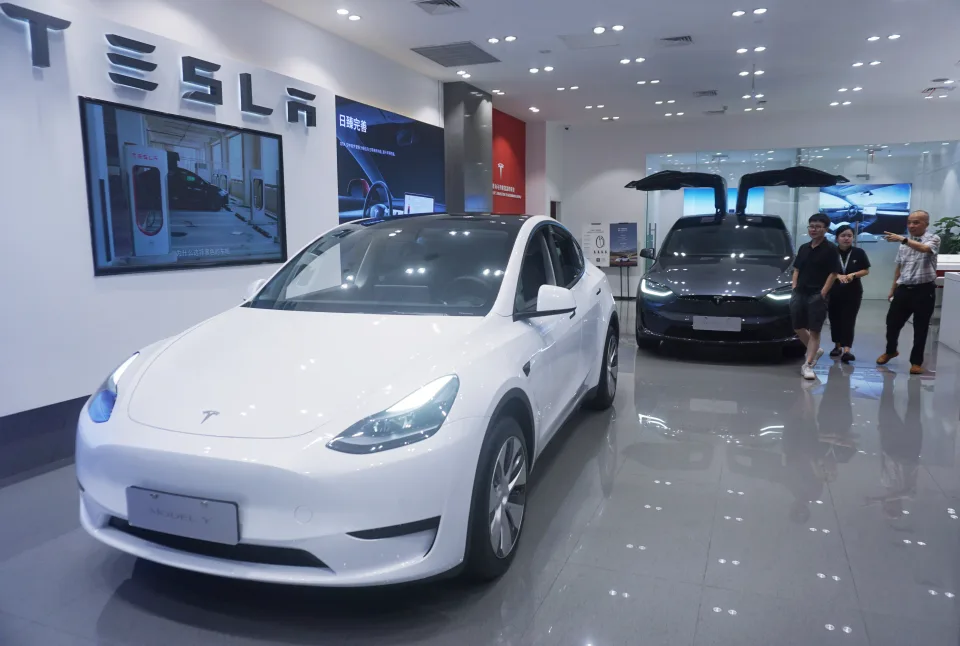Tesla stock bounces back: 27% surge erases year-to-date declines
Tesla stock has experienced a tumultuous ride this year, marked by significant ups and downs that have captivated investors and analysts alike. After ending last year at $248.48 per share, Tesla’s stock price plummeted to a low of $138.80 in April, reflecting a sharp decline driven by various challenges facing the company.
However, recent developments have sparked a remarkable turnaround. Tesla’s stock rallied enough by the end of last week to not only erase its losses for the year but also achieve a notable 27% gain within just one week. Closing at $251.55 on Friday, this resurgence came on the heels of a better-than-expected deliveries report for the second quarter, despite a 4.8% drop compared to the previous year. While still a decline, it was less severe than the first-quarter drop, offering investors a glimmer of optimism as they look towards the remainder of the year.

Earlier in the year, Tesla faced daunting challenges. Sales in its core automotive business faltered in the first quarter, prompting the company to implement sweeping layoffs and reportedly abandon plans for a low-cost family car production at its Texas factory. These setbacks contributed to a bearish sentiment that pushed Tesla’s stock to its lowest point in over a year.
Looking ahead, Tesla’s upcoming second-quarter financial results, scheduled for release on July 23, are anticipated with keen interest, particularly regarding automotive gross margins. The company’s strategy has pivoted towards aggressive discounting and incentives aimed at bolstering demand for its existing lineup of electric vehicles, including the popular Model 3 sedans, Model Y crossovers, and the upscale Model S sedans and Model X SUVs.
Despite the challenges, Tesla continues to command attention as a leading player in the electric vehicle sector. Its ability to navigate through turbulent market conditions while maintaining focus on innovation and profitability remains crucial to its long-term success and investor confidence. As the industry evolves and competition intensifies, Tesla’s resilience and strategic decisions will continue to shape its trajectory in the global automotive landscape.
Tesla’s Recent Performance and Market Position
In late 2023, Tesla made headlines with the launch of its distinctive Cybertruck, marking a bold entry into the electric pickup market. Recently, a Tesla Cybertruck account on X, a prominent social media platform, claimed that the Cybertruck emerged as the top-selling fully electric pickup in the U.S. during the second quarter of this year. This announcement underscored Tesla’s growing presence in the competitive electric vehicle (EV) sector.
Comparison with Ford’s F-150 Lightning
Meanwhile, Ford reported its own strides in the EV pickup market, revealing sales figures of 7,902 units for its fully electric F-150 Lightning in the second quarter alone, with a cumulative total reaching 15,645 units by the end of June. This places Ford in direct competition with Tesla, highlighting the intensifying rivalry in the burgeoning electric pickup segment.

Upcoming Catalysts: Robotaxi Day and Market Expectations
Looking ahead, industry analysts at Cantor Fitzgerald anticipate Tesla’s forthcoming Robotaxi Day event to serve as a pivotal moment for the company. Scheduled for early next month, this event is expected to unveil Tesla’s vision for a Robotaxi or Cybercab service, set for potential launch by 2027. Despite projections of fewer vehicle deliveries this year compared to the previous, Cantor Fitzgerald maintains an optimistic outlook with a price target of $230 per share, endorsing Tesla as a buy.
Market Performance and Challenges
While Tesla has rebounded from earlier lows, its stock’s 1.2% increase for the year contrasts sharply with broader market indices. The Nasdaq, for instance, has surged 22% in 2024, underscoring Tesla’s relative underperformance despite recent gains. Moreover, recent polls indicate growing concerns over Tesla’s brand perception, attributed in part to CEO Elon Musk’s controversial public statements and political activities, which have reportedly alienated some consumer demographics.

Challenges in Autonomous Driving Technology
On the technological front, Tesla continues to face delays in deploying fully autonomous driving capabilities promised since 2016. Despite initial hardware readiness, the company recently announced plans for a new hardware and sensor setup to enable this feature, signaling ongoing challenges and setbacks in realizing its self-driving ambitions.
In summary, while Tesla maintains a strong foothold in the EV market with milestones like the Cybertruck’s success and upcoming innovations, it navigates challenges ranging from market performance pressures to technological delays and brand perception issues tied to its charismatic but polarizing CEO. The company’s ability to address these complexities will be crucial as it charts its course in the dynamic landscape of electric mobility and autonomous driving.
For the latest in crypto updates, keep tabs on Crypto Data Space.




Leave a Reply